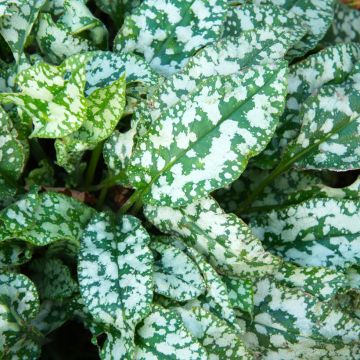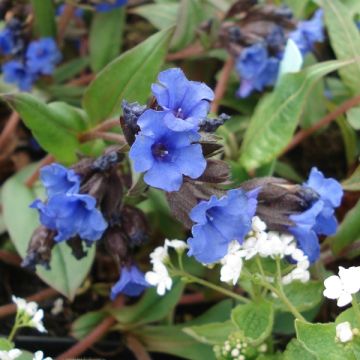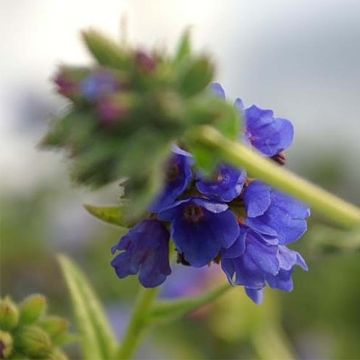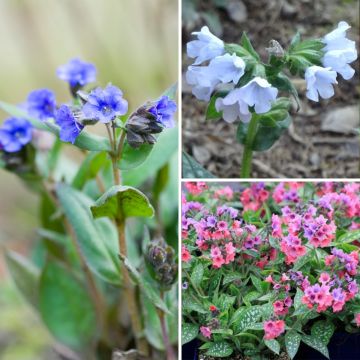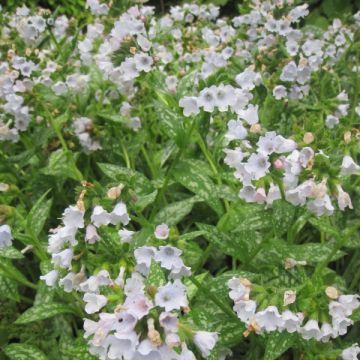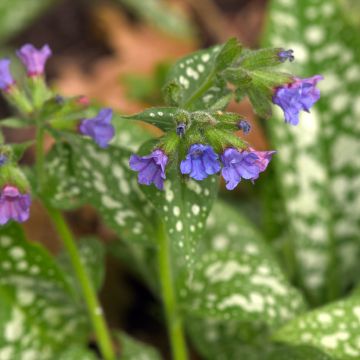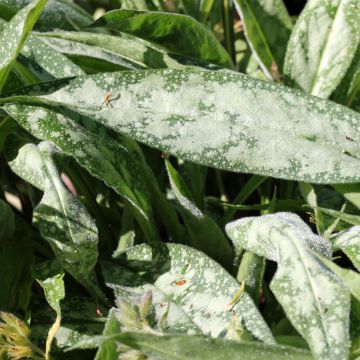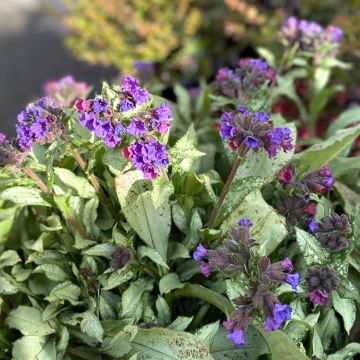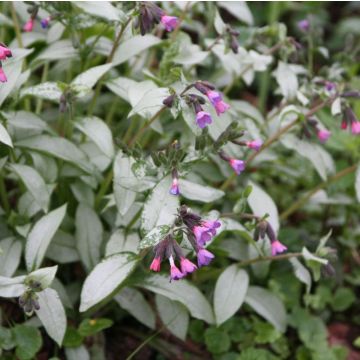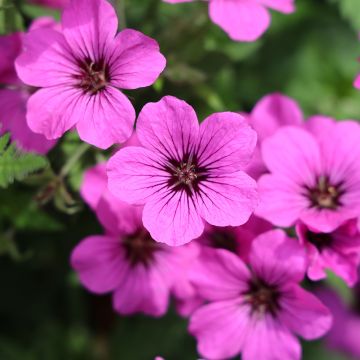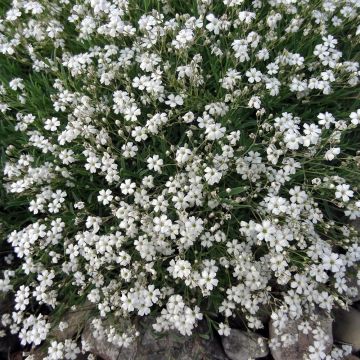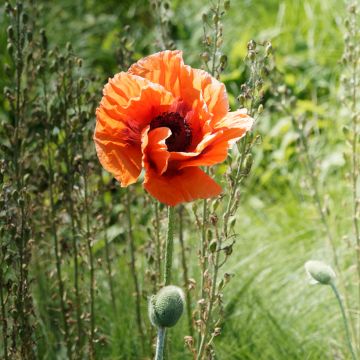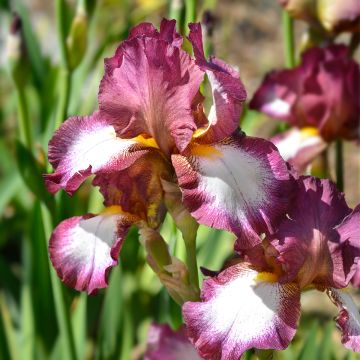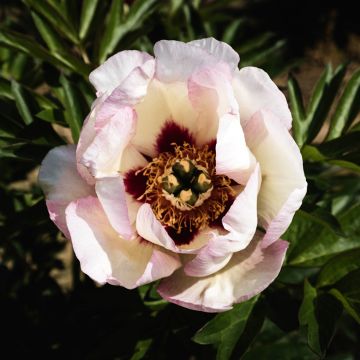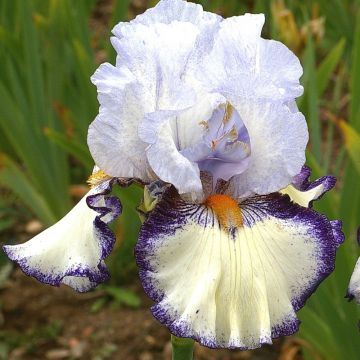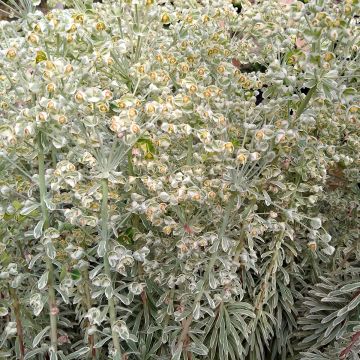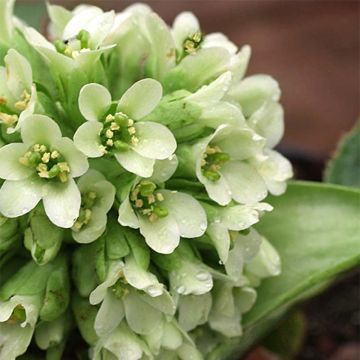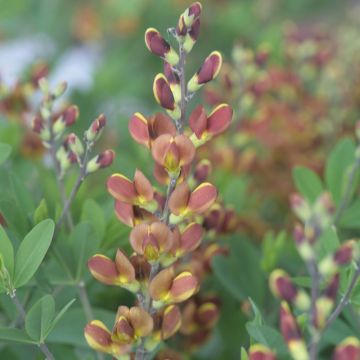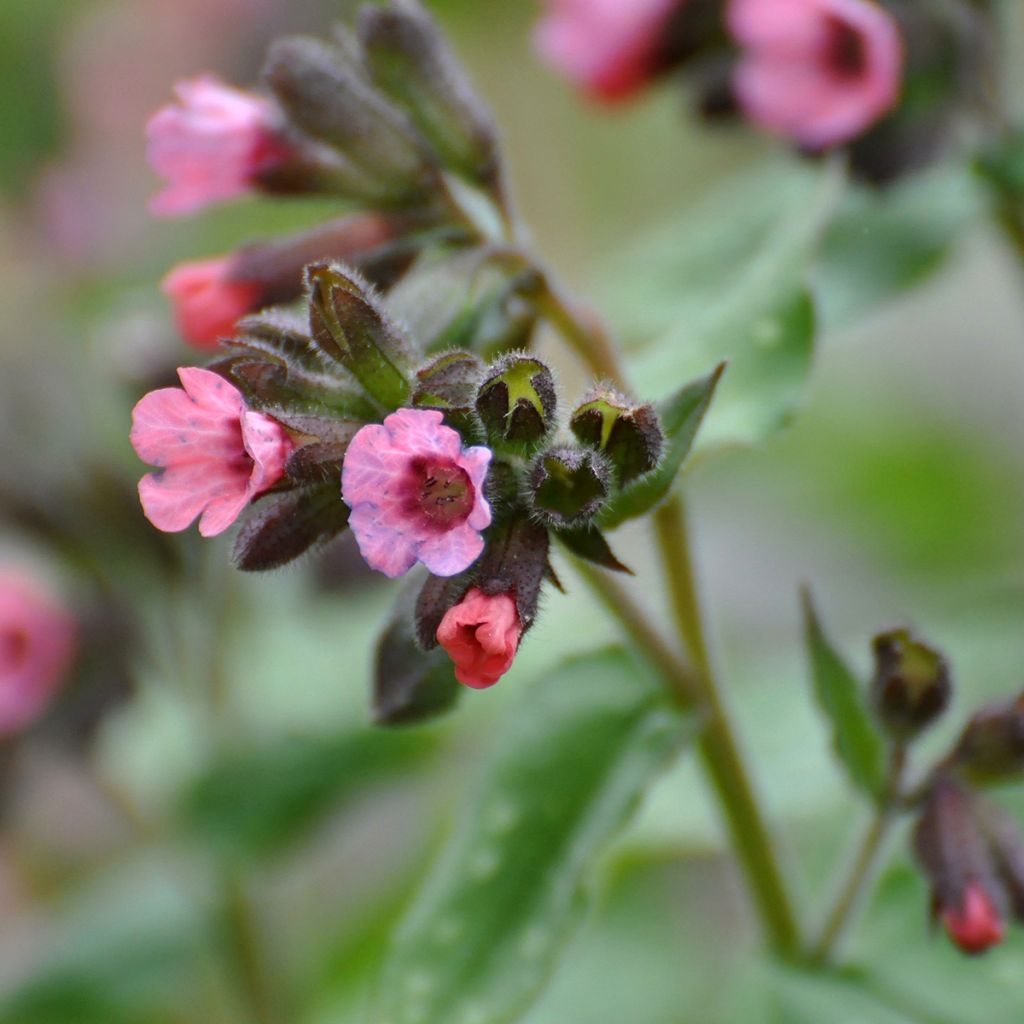

Pulmonaria saccharata Dora Bielefeld - Lungwort
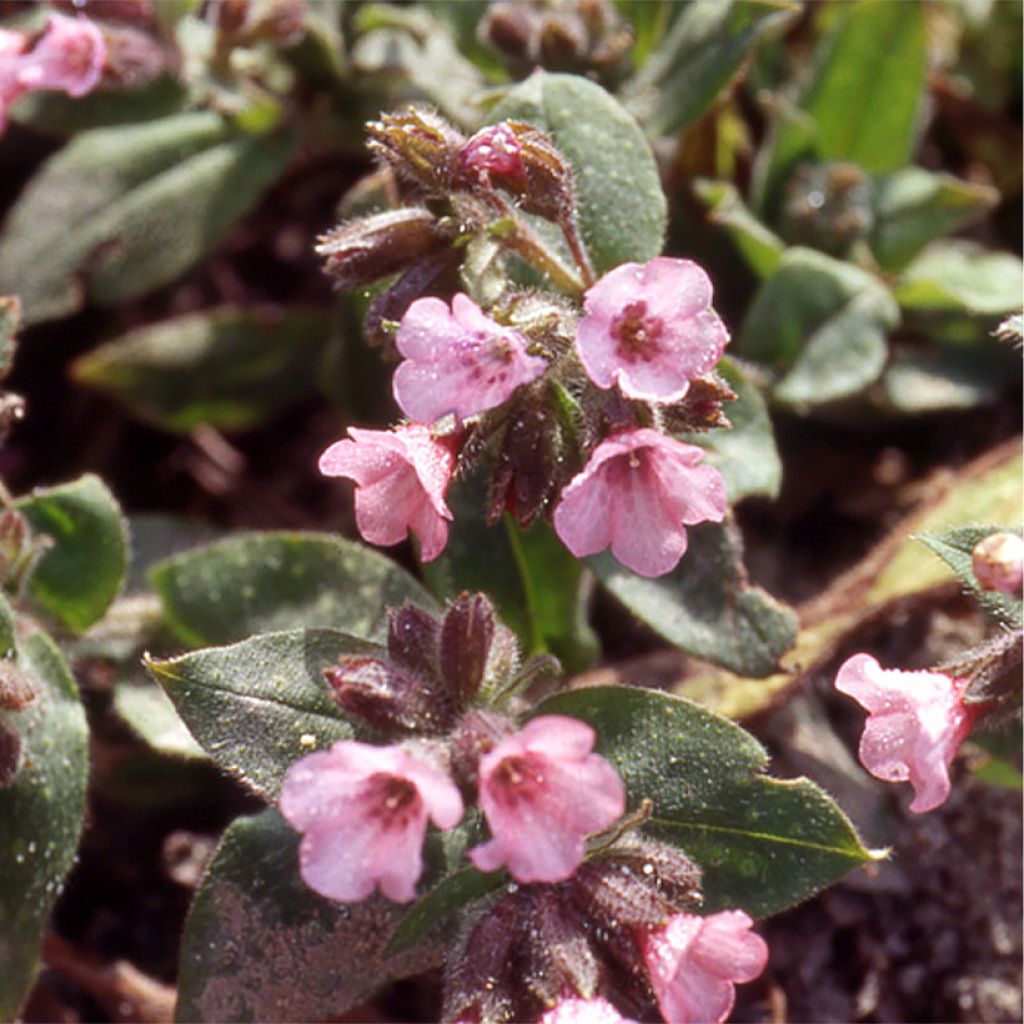

Pulmonaria saccharata Dora Bielefeld - Lungwort
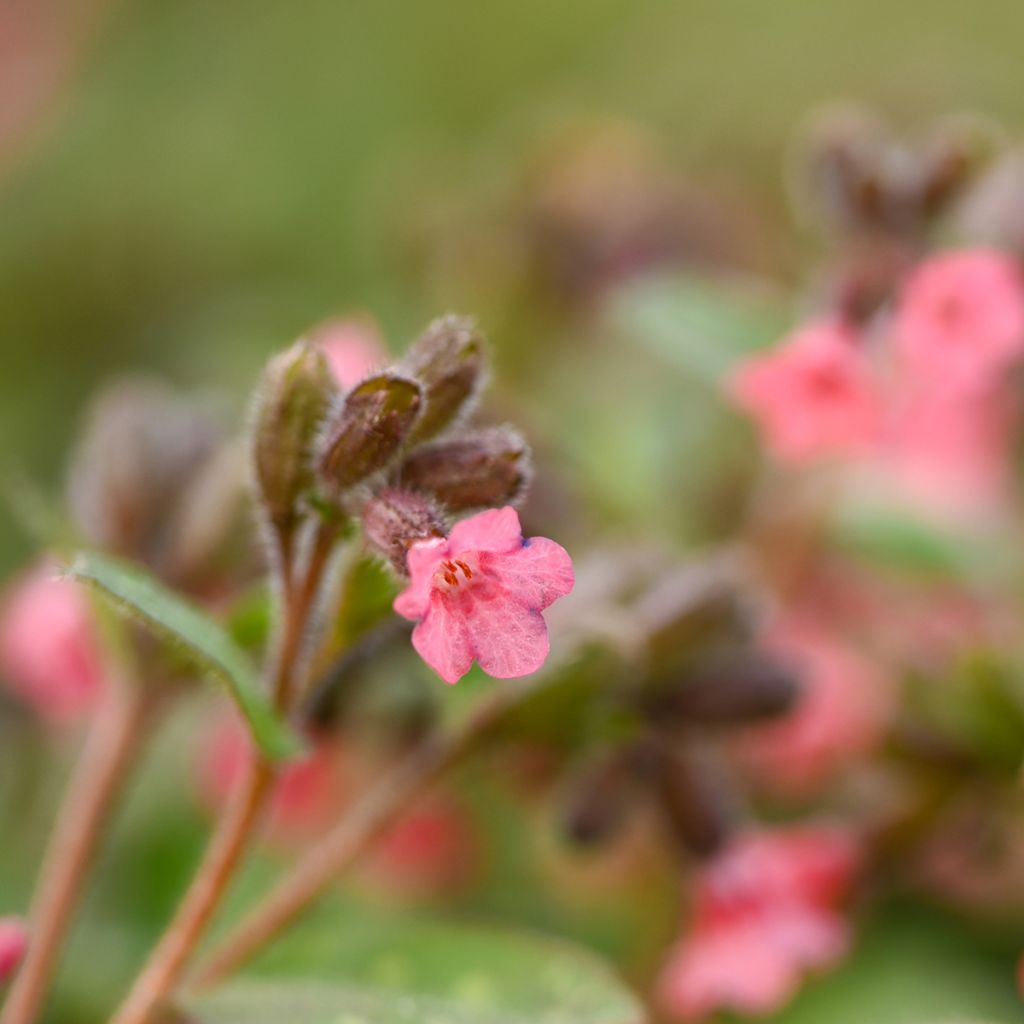

Pulmonaria saccharata Dora Bielefeld - Lungwort
Pulmonaria saccharata Dora Bielefeld - Lungwort
Pulmonaria saccharata 'Dora Bielefeld'
Lungwort
This item cannot be shipped to the selected country
Delivery charge from €5.90
More information
Schedule delivery date,
and select date in basket
This plant carries a 12 months recovery warranty
More information
We guarantee the quality of our plants for a full growing cycle, and will replace at our expense any plant that fails to recover under normal climatic and planting conditions.
From €5.90 for pickup delivery and €6.90 for home delivery
Express home delivery from €8.90.
Does this plant fit my garden?
Set up your Plantfit profile →
Description
The Pulmonaria saccharata 'Dora Bielefeld' is a German selection of lungwort appreciated for its flowering, habit, disease resistance, and adaptability to difficult climatic conditions. The Chicago Botanic Garden has noted it very favourably for all these aspects. Its fresh green foliage marked with pale silver spots forms spreading and dense clumps, retaining its ornamental qualities until winter. The abundant light pink funnel-shaped flowers emerge from coral buds and, unlike other lungworts, these flowers rarely turn blue.
The hybrid lungwort 'Dora Bielefeld' is a horticultural cultivar derived from the species Pulmonaria saccharata (syn. P. picta), also known as Bethlehem sage. The Pulmonaria saccharata, also called Spotted lungwort, is a fully hardy herbaceous perennial plant belonging to the same family as borage and brunnera, the Boraginaceae family. It is a botanical species native to semi-open woodland areas in Europe and Asia, and has given rise to numerous cultivars with silver-spotted foliage. Pulmonaria saccharata is an evergreen plant found at between 600 and 1700 m (1968 and 5577ft) altitude in cool and shaded areas.
The 'Dora Bielefeld' variety forms a 25 to 30 cm (10 to 12in) high carpet of flowers and spreads laterally without a theoretical limit, but at least up to 60 cm (24in) in width. The leaves, arranged in a flat rosette, are very hairy and about 25 cm (10in) long. They are lanceolate, pointed at the top and rounded at the base, while those on the flowering stems are alternate, elongated, and without petioles. They are fresh green in colour, irregularly speckled with pale silver. Between March and June, stems covered with slightly rough hairs emerge from the foliage. They bear pendulous clusters or cymes of tubular flowers measuring 5 to 10 mm (0in) wide, light pink in colour, darker on the outside of the flowers and in the throat, and open from coral buds. This early flowering attracts the first bees, at a time of year when sources of nectar are still scarce. The creeping rhizome of lungworts produces new clusters of leaves after flowering, expanding the colony. The foliage persists throughout the year, even in winter if the frosts are not too severe.
The 'Dora Bielefeld' lungwort is a discreet, yet refined, hardy and luminous plant in shady beds, at the base of bushes, or in damp woodlands. It forms an excellent ground cover with often persistent foliage in well-protected areas. Without demanding conditions, it is content with soil under trees and bushes, as well as along sunless walls. A north or east-facing border also suits this plant perfectly. In summary, it is a blessing as long as it finds some freshness. Shady beds and the foreground of conifers pose no problem for this plant. Pair its flowering with spring bulbs for added cheerfulness and with late-flowering ground covers such as Geranium nodosum or periwinkle. Also consider the silver foliage of brunneras as an echo.
Report an error about the product description
Pulmonaria saccharata Dora Bielefeld - Lungwort in pictures


Flowering
Foliage
Plant habit
Botanical data
Pulmonaria
saccharata
'Dora Bielefeld'
Boraginaceae
Lungwort
Cultivar or hybrid
Other Pulmonaria - Lungwort
Planting and care
Lungworts like 'Dora Bielefeld' are good hardy perennial plant. They prefer leafy undergrowth where they find the necessary spring moisture for their proper development. As theses plants flower early, they receive sufficient light before the trees develop their leaves. They are not afraid of limestone, and they all like a fresh but well-drained humus-bearing soil, which is often the case in a clear undergrowth, where the humus of dead leaves nourishes them and the tree roots drain excess water. That said, they also accept a shaded position on the edge of a flower bed, and manage to grow in heavy and clayey soils. However, lungworts still fear competition from superficial roots, and their foliage disappears in dry weather during the summer. These plants fear heat, which promotes the development of fungal diseases. In gardens, these plants are used to accompany hostas, primroses, small development astilbes, astrantias or even to fill the base of bushes.
Planting period
Intended location
Care
This item has not been reviewed yet - be the first to leave a review about it.
Spring flowering perennials
Haven't found what you were looking for?
Hardiness is the lowest winter temperature a plant can endure without suffering serious damage or even dying. However, hardiness is affected by location (a sheltered area, such as a patio), protection (winter cover) and soil type (hardiness is improved by well-drained soil).

Photo Sharing Terms & Conditions
In order to encourage gardeners to interact and share their experiences, Promesse de fleurs offers various media enabling content to be uploaded onto its Site - in particular via the ‘Photo sharing’ module.
The User agrees to refrain from:
- Posting any content that is illegal, prejudicial, insulting, racist, inciteful to hatred, revisionist, contrary to public decency, that infringes on privacy or on the privacy rights of third parties, in particular the publicity rights of persons and goods, intellectual property rights, or the right to privacy.
- Submitting content on behalf of a third party;
- Impersonate the identity of a third party and/or publish any personal information about a third party;
In general, the User undertakes to refrain from any unethical behaviour.
All Content (in particular text, comments, files, images, photos, videos, creative works, etc.), which may be subject to property or intellectual property rights, image or other private rights, shall remain the property of the User, subject to the limited rights granted by the terms of the licence granted by Promesse de fleurs as stated below. Users are at liberty to publish or not to publish such Content on the Site, notably via the ‘Photo Sharing’ facility, and accept that this Content shall be made public and freely accessible, notably on the Internet.
Users further acknowledge, undertake to have ,and guarantee that they hold all necessary rights and permissions to publish such material on the Site, in particular with regard to the legislation in force pertaining to any privacy, property, intellectual property, image, or contractual rights, or rights of any other nature. By publishing such Content on the Site, Users acknowledge accepting full liability as publishers of the Content within the meaning of the law, and grant Promesse de fleurs, free of charge, an inclusive, worldwide licence for the said Content for the entire duration of its publication, including all reproduction, representation, up/downloading, displaying, performing, transmission, and storage rights.
Users also grant permission for their name to be linked to the Content and accept that this link may not always be made available.
By engaging in posting material, Users consent to their Content becoming automatically accessible on the Internet, in particular on other sites and/or blogs and/or web pages of the Promesse de fleurs site, including in particular social pages and the Promesse de fleurs catalogue.
Users may secure the removal of entrusted content free of charge by issuing a simple request via our contact form.
The flowering period indicated on our website applies to countries and regions located in USDA zone 8 (France, the United Kingdom, Ireland, the Netherlands, etc.)
It will vary according to where you live:
- In zones 9 to 10 (Italy, Spain, Greece, etc.), flowering will occur about 2 to 4 weeks earlier.
- In zones 6 to 7 (Germany, Poland, Slovenia, and lower mountainous regions), flowering will be delayed by 2 to 3 weeks.
- In zone 5 (Central Europe, Scandinavia), blooming will be delayed by 3 to 5 weeks.
In temperate climates, pruning of spring-flowering shrubs (forsythia, spireas, etc.) should be done just after flowering.
Pruning of summer-flowering shrubs (Indian Lilac, Perovskia, etc.) can be done in winter or spring.
In cold regions as well as with frost-sensitive plants, avoid pruning too early when severe frosts may still occur.
The planting period indicated on our website applies to countries and regions located in USDA zone 8 (France, United Kingdom, Ireland, Netherlands).
It will vary according to where you live:
- In Mediterranean zones (Marseille, Madrid, Milan, etc.), autumn and winter are the best planting periods.
- In continental zones (Strasbourg, Munich, Vienna, etc.), delay planting by 2 to 3 weeks in spring and bring it forward by 2 to 4 weeks in autumn.
- In mountainous regions (the Alps, Pyrenees, Carpathians, etc.), it is best to plant in late spring (May-June) or late summer (August-September).
The harvesting period indicated on our website applies to countries and regions in USDA zone 8 (France, England, Ireland, the Netherlands).
In colder areas (Scandinavia, Poland, Austria...) fruit and vegetable harvests are likely to be delayed by 3-4 weeks.
In warmer areas (Italy, Spain, Greece, etc.), harvesting will probably take place earlier, depending on weather conditions.
The sowing periods indicated on our website apply to countries and regions within USDA Zone 8 (France, UK, Ireland, Netherlands).
In colder areas (Scandinavia, Poland, Austria...), delay any outdoor sowing by 3-4 weeks, or sow under glass.
In warmer climes (Italy, Spain, Greece, etc.), bring outdoor sowing forward by a few weeks.

































